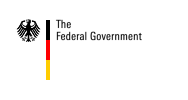On 24 May 2007, Chancellor Angela Merkel presented the agenda of the German G8 Presidency 2007 to the German Bundestag. It lives up to the G8's special responsibility to help create stable and reliable conditions for the global economy. At the same time, however, it makes quite clear that this responsibility must be shared by the larger emerging economies such as China, India and Brazil, and that as globalisation progresses, the G8 will become less and less able to bear the burden alone.
Growth and responsibility in the global economy
In its economic policy agenda the German G8 Presidency addresses issues of fundamental importance for stability in global trade and financial relations.
- Renewed impetus in discussing strategies aimed at achieving balanced worldwide growth and reducing global imbalances (current account deficit in the United States, insufficient growth in Europe and Japan, growing foreign exchange reserves in Asia); discussion of measures to improve the systemic stability and transparency of financial and capital markets.
- G8 commitment to freedom of investment in industrialised nations and emerging economies. Addressing of global investment conditions. Discussion of the social dimension of globalisation and the responsibility of private businesses for their workforce and the environment when making foreign direct investments ("Globalisation with a human face" to quote Chancellor Angela Merkel.)
- Dialogue on the central importance of innovation as the foundation of knowledge-based societies and the need to strengthen the protection of innovations against product and trademark piracy. Development of preventive strategies with the private sector, focusing in particular on the responsibility of the trade.
- The sustainable use of resources as a key task for the future. Great importance will be attributed to the subject of energy efficiency. New impetus for global climate protection and common international efforts after 2012 (post-Kyoto) will play an important role.
- The German G8 Presidency will not lose sight of its guiding motto, "Involving emerging economies in the system of global responsibility". The political initiatives triggered in Heiligendamm are to be continued in a structured dialogue with the larger emerging economies.
Growth and responsibility in Africa
Alongside the focus on the world economy, urgent issues pertaining to Africa will be a priority of the Heiligendamm Summit. With its agenda, the German G8 Presidency is taking a three-pronged approach, with debt relief (Cologne, 1999), new pledges of ODA and further multilateral debt cancellation pledges (Kananaskis 2002 and Gleneagles 2005) and now also initiatives to improve Africa's economic forces. The German G8 Presidency is convinced that the Millennium Development Goals (MDGs) can only be achieved with the help of investment and economic growth. Keeping to the pledges of increased ODA is a vitally important foundation for building credibility vis à vis African states and for involving them in the system of shared responsibility. Joint efforts will be addressing in particular the following initiatives:
- Good governance: legal certainty, anti-corruption, transparency as a major prerequisite for investment and growth in Africa
- Strengthening the partnership for reform between the G8 states and pro-reform African governments. Strengthening regional integration and trade through cooperation with the African Union and regional economic communities
- Fighting HIV/AIDS, tuberculosis and malaria, establishing effective health systems and achieving peace and security (strengthening inner-African crisis resolution capabilities), while at the same time emphasising African ownership, are essential preconditions for social and economic development.
Further procedure
Alongside this agenda for the G8 Summit, a series of G8 ministerial meetings will be held in Germany on a variety of subjects during the German G8 Presidency in preparation for the summit.

